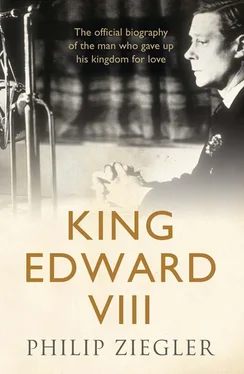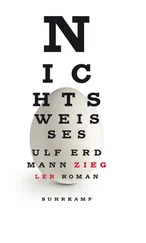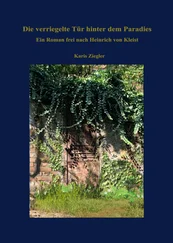Such moods of contrition became more frequent after his first few months at Oxford. The Prince did nothing very wicked but for the first time in his life he found it possible to slip his leash, and it would have been surprising if he had not celebrated the fact with mild excess. Many years later he told the American journalist Cy Sulzberger that he had found Oxford quite agreeable ‘because we were drunk all the time’. 113He exaggerated, but though not drunk all the time, he managed it not infrequently. On 10 November 1912 he drank too much port, fell, made his nose bleed, and had to be put to bed by two friends who distracted Hansell while he got undressed. But he had the resilience of youth. He was walking round the garden by 7.30 the following morning and apologizing to his friends not long afterwards – ‘They were awfully nice about it.’ 114Usually there was more noise than alcohol: ‘There were 25 of us and we went up to Somerville’s rooms where we danced and made a row … It was a great evening.’ 115He eschewed the chic world of Evelyn Waugh’s Bollinger Club baying for broken glass. He was elected to the Bullingdon – in its own eyes at least the most elite of Oxford dining clubs – went to a dinner, was made to drink too much, and retired furious and the worse for wear: ‘I will have nothing more to do with the filthy riding men, they are a beastly set.’ 116
He never joined the set, but within a few months of making this entry in his diary he had become a riding man himself. His father considered that this was a part of his education quite as important as learning French or studying the constitution. ‘If you can’t ride, you know, I’m afraid people will call you a duffer,’ he told his son. Hunting was the only way to learn properly. ‘The English people like riding and it would make you very unpopular if you couldn’t do so.’ 117Cadogan was in charge of the training and found his pupil at first recalcitrant. A year before, the Prince had hunted near Sandringham and had stood about all day ‘soaked through and petrified with cold. And then they wonder why one does not like hunting!’ 118Now he grumblingly let himself be dragged off to ride in the neighbourhood but showed plainly that he thought it a bore – ‘deadly as usual’. 119To his surprise he found that he was beginning to enjoy the riding more and more. He went out with the South Oxfordshire hunt, was in the saddle for seven hours without falling off, was awarded the brush and enjoyed his day. 120‘Until a few months ago I was terrified of riding and loathed the sight of a horse,’ he told a friend, ‘but it suddenly came to me, and under Cadogan’s instruction and tuition, I have now plenty of confidence and jump everything!!’ 121Some time that spring he graduated to that horseman’s nirvana, the Pytchley hunt. The King’s private secretary, Lord Stamfordham, congratulated him with all the gravity befitting so august an occasion. ‘I solemnly believe that few things will tend more to endear you to the people who some day by God’s will will be your subjects.’ 122
Riding was only one of the Prince’s sporting pursuits. He golfed, played squash and went for gruelling runs. He played cricket at Radley, made a duck, and commented sourly: ‘It’s a poor game.’ 123He was a regular member of the Magdalen football second XI, and appeared occasionally in the first. He shot from time to time on estates near Oxford. Lord Crawford met him in October 1913 with the Wantages at Lockinge. ‘The Prince of Wales seems overburdened with his duties which he performs with meticulous precision,’ he noted. ‘Poor boy, somehow he made me feel very sorry for him … If only he would bolt with a ballet girl, say for twenty-four hours!’ 124The poor boy still found time to gamble several evenings a week, though he rarely lost or won more than £10 or so; to acquire and drive a 39-horse-power touring model blue Daimler; to learn the bagpipes with Pipe-Major Ross of the Scots Guards. He joined the Officers’ Training Corps, whose adjutant was the future Field Marshal Jumbo Wilson, and scored 96 out of 100 shooting at a static target and 86 at a moving. Fifty would have earned a pass, and 75 been enough for qualification as a marksman. He took part in night manoeuvres in Blenheim Park and spent a hectic few days in the annual camp, rising at 5 a.m. to act as breakfast orderly and having a ride in an airship. ‘It was the first time I had ever flown and the sensation is wonderful.’ 125
Into the interstices of these activities he fitted his academic life. Some further education was badly needed; his mind in 1912 was a ragbag of miscellaneous information and his power of expressing what he knew was limited. He spelt deplorably; in one letter alone writing ‘chaplin’ for chaplain, ‘chapple’ for chapel, ‘colision’, ‘dammaged’ and ‘explaned’. He was supposed to go regularly to lectures and follow a programme of special studies with tutors. The lectures he frequently eschewed. He went once to hear Walter Raleigh on English literature and complained, ‘It was very hard to understand and I do not think I shall go to any more.’ 126The Rev. Lancelot Phelps on political economy proved more attractive: ‘Political Economy interests me more the more that I do it and I think I have quite got hold of the line of thought.’ 127But the individual tuition was more important. The Prince studied history with Charles Grant Robertson, French with Monsieur Berthon, German with Professor Fiedler and constitutional law with Sir William Anson, the Warden of All Souls. Anson probably taught the Prince almost everything of importance which he retained from his time at Oxford; a brilliant expositor, a man of charm, humour and generosity, he was liked as well as admired by the Prince – ‘a remarkable and distinguished little man,’ he called him affectionately. 128
Unfortunately, the central figure, to whom the Prince had to read an essay every week, was the President of Magdalen, Sir Herbert Warren. Warren had a good mind and no doubt many other redeeming features, but what most struck the undergraduates was that he was a bore and a snob. The Prince loathed him – ‘an awful old man’ he described him. 129Reading an essay to a critical and often supercilious pedagogue is always an ordeal; it is made worse if one dislikes one’s auditor. The Prince dreaded his weekly session. He knew, with reason, that essay-writing was not his forte and rarely got any pleasure from their composition. Most of his efforts survive; 130on St Anselm, Beaconsfield, Chatham, Nelson, ‘The Relation of Democracy to War’, Tennyson. They were conscientious, superficial and unimaginative. Cromwell was ‘one of England’s greatest statesmen and generals’; on ‘Ambition’ he commented: ‘The most ideal form of ambition is when it is used for the sake of one’s country. That patriotism should be the genuine motive is the most perfect thing conceivable.’
His best essay, and the subject which he most cared about, dealt with the explorer Scott. He had read Scott’s Last Expedition while on holiday at York Cottage, a laborious process, since he read slowly and it kept him up until 1 a.m. for almost a month, but a rewarding one: ‘It is a most fascinating book and a wonderful story of pluck in the face of ghastly hardship and suffering.’ 131His essay reflected this enthusiasm; Warren thought well enough of it to send it to the King, who passed it on to the historian and former prime minister, Lord Rosebery. Rosebery was predictably enthusiastic: ‘It was really admirable … a clear, sympathetic and vigorous narrative through which one can see the author’s heart. I am quite astonished at it …’ He wrote more as courtier than critic, but the essay did deserve praise. The Prince’s final comment was characteristic: ‘It bears out the fact that Englishmen can endure hardships and face death as it should be faced.’ 132
Читать дальше












